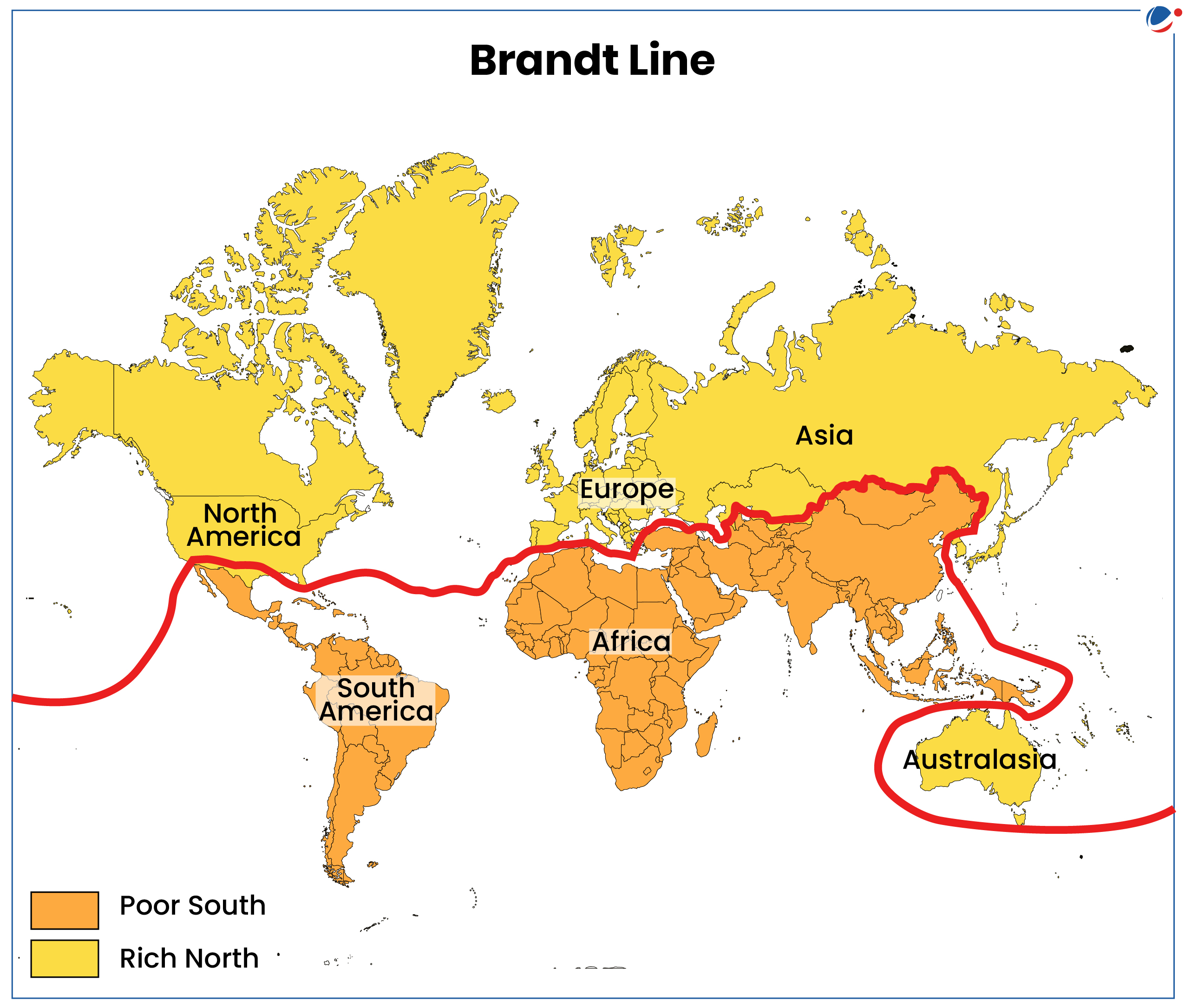Why in the News?
India hosted the third Voice of Global South Summit in virtual format.
More on the News
- India hosted the 1st Voice of Global South Summit in January 2023 and the 2nd edition was held in November 2023, both in virtual format.
- The Voice of Global South Summit is an extension of India's philosophy of Vasudhaiva Kutumbakam, or "One Earth, One Family, One Future" to the international arena.
Key Highlights of the 3rd VOGSS
- Participation: 123 countries (China & Pakistan not invited)
- Theme: An Empowered Global South for a Sustainable Future.
- India has proposed a comprehensive and human-centric "Global Development Compact" to address the rising debt of the developing countries for the Global South.
Click here to read in detail about the Global Development Compact.
- India will work to provide affordable generic medicines, share experiences in natural farming with Global South countries.
- India will also launch a special fund of $2.5 million to boost trade promotion activities, and $ 1 million fund for capacity building in in trade policy and trade negotiation.
What is Global South?

- It refers to technically and socially less developed countries which are located in Southern Hemisphere, primarily in Africa, Asia, and Latin America.
- Brandt Report proposed a division between North and South countries based on various parameters such as technological advancement, GDP etc.
Challenges faced by Global South
- Underrepresentation in global forums: E.g. Exclusion of African and Latin America from the UN Security Council's permanent membership.
- High Public Debt: E.g. As per UNCTAD's 'A world of debt Report 2024', public debt in developing countries is rising at twice the rate of that in developed countries.
- Obsolete global governance and financial institutions: E.g. dysfunctional WTO's appellate dispute settlement mechanism, under-representation in Bretton Woods Institutions such as World Bank and IMF.
- Disproportionate vulnerability to climate change. E.g. As per WMO's 'State of the Climate in the South-West Pacific 2023 Report' Pacific Islands are at higher risk due to the increasing sea level despite accounting for merely 0.02% of global emissions.
- Divergence from Global North: E.g. lack of consensus over interpretation of democracy, human rights, and agenda for climate governance etc.
- Moreover, geopolitical conflicts of Global North impacts the Global South. E.g. Russia-Ukraine conflict has led to inflation in food and oil prices
Significance of Global South for India
- International influence: The Global South is an important support for India's international influence and its economic transformation and development.
- Strategic consideration: Relations with the Global South is an important part of India's "multidirectional alignment" strategy.
- It also helps to offset China's influence.
- Economic development: Global South can provide abundant resources and provide a vast market for the export of Indian products.
How is India positioning itself as a voice for Global South?
- Enhancing connectivity and economic inter-linkages: By undertaking projects ranging from large scale infrastructure development to community related projects in various sectors, including health, housing, environment and education.
- Extending financial, budgetary and humanitarian assistance to partner countries to aid them in mitigating economic challenges and overcome crises.
- Capacity building and emerging as 1st responder of the Global South. E.g. India-UN Capacity Building Initiative, Vaccine Maitri initiative during Covid-19.
- Leading the Global Climate Agenda: E.g. championing International Solar Alliance (ISA) & Coalition for Disaster Resilience (CDRI), supporting Common but Differentiated Responsibilities (CBDR)
- Advocacy of issues relevant for Global South: E.g. The induction of the African Union into the G20.
- Reforming multilateral institutions: E.g. demand for broadening of the UNSC's permanent membership.
- Alternative Mechanisms on issues like democracy and human rights: E.g. based on Panchsheel, Gujral Doctrine and Principle of Non- Aligned Movement.
Challenges for India in leading the Global South
- Diverse Interests: Global South is a diverse region with varying economic, political, and social interests which makes it difficult to align into a unified stance.
- Competition with China: China's competition and interference in development finance, infrastructure, trade, delivery of projects etc. E.g. BRI, cheque book diplomacy.
- Diplomatic Challenge: Balancing strategic partnerships with powers such as USA, Russia while trying to represent Global South can be diplomatically challenging.
- Moreover, it may undermine its credibility as it might be seen as a tilt away from traditional Non-Aligned Movement (NAM) principles.
- Limited Comprehensive National Strength: India's limited national strength and poor manufacturing industry, coupled with low S&T innovation and labour quality, pose challenges in addressing the complexities of the Global South.
- Issue with energy transition: India faces criticism for its reliance on fossil fuels and challenges in meeting its own climate commitments. E.g. Western Countries criticized India after it opposed a commitment to "phase out" coal at COP 26.
India's Initiatives showcasing advocacy for Global South
|
Conclusion
As India transitions from a balancing to a leading power, it should leverage its rich cultural ethos like "Vasudhaiva Kutumbakam" to unite Global South countries. By bridging the digital divide, supporting disaster-resilient infrastructure, and advocating for an inclusive, equitable international order, India can amplify their collective voice on global platforms.







